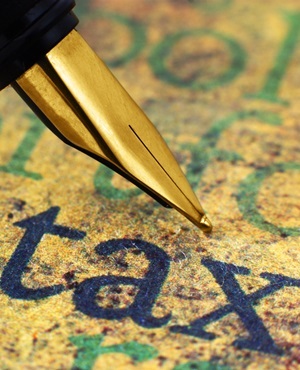
Notwithstanding all the recent speculation around an increase in VAT, National Treasury steered away from politically sensitive taxes and mainly targeted personal income tax to meet the R28 billion tax shortfall for the 2017/18 tax year.
According to tax expert Matthew Lester, the contribution of personal income tax as a percentage of total revenue will have increased from 33% in 2011 to 38%.
The Budget Review reflected a R30.4 billion revenue shortfall for the 2016/17 tax year, mostly as a result of lower-than-expected collection of personal income taxes, custom duties and import VAT, all indicating that households are earning less and have less to spend.
For the first time since 2009/10, tax revenues have not kept pace with economic growth and, at a post-budget discussion, Lester warned that the final tax collection figure may be even lower than expected.
A Treasury official told City Press that although a proper analysis of the tax figures would only be available later this year, the tax collection figures from the SA Revenue Service (Sars) suggest fewer bonuses were paid in this financial year, and there was a reduction in the employment numbers in taxable income brackets.
Despite this, personal income taxpayers will be paying a further R16.5 billion in the coming tax year. Although a great deal of attention has been on the 45% tax rate on individuals earning R1.5 million or more a year, the bulk of the personal income tax increase will be collected across all income brackets.
About R12.15 billion will come from “bracket creep” as the personal income tax tables will not be fully adjusted for inflation, reducing real income. In other words, an inflation-adjusted salary increase will see you pay more tax.
At a post-budget dinner, when asked why Treasury had introduced the new 45% tax bracket, Finance Minister Pravin Gordhan replied: “It’s simple, we needed the money.”
Higher tax rates for wealthier individuals ties into the goal of addressing inequality and a more redistributive approach. Gordhan said that an increase in VAT was considered, but as it also hurt the poor, it was felt that a higher tax rate was preferable at this stage.
However, he also said VAT would be seriously considered in the next budget.
“We need to start having a conversation about VAT increases; it is on the table,” said Gordhan.
However, he made it clear it would not come as a surprise and Treasury would first have discussions around the issue.
The increase in the top tax rate required a move by Treasury to close the arbitrage opportunity for higher-income earners to receive dividends in lieu of a salary by increasing dividend withholding tax from 15% to 20%. With this adjustment, a business owner who opts to take dividends rather than a salary would pay 42.4% tax. This increase will raise a further R6.8 billion in revenue.
In an interview with City Press, a Treasury official said this was “unfortunate” as it would affect savers and investors, but that the arbitrage opportunity left them with little option.
Investors, especially those who rely on dividend income, could see their dividend income reduced by up to 6%. In addition, the higher tax rate increases the maximum effective capital gains tax from 16.4% to 18%. This is not good news for a country with a low savings rate, however, it does increase the attractiveness of tax-efficient products such as retirement funds and tax-free savings accounts.
The annual maximum contribution to a tax-free savings account has been increased from R30 000 to R33 000. Last year, tax-free contributions to retirement funds were increased to 27.5% of income, subject to a R350 000 cap. This cap means that individuals earning R1.5 million a year have an effective contribution cap of 23%. The usual fuel levy and sin tax increases will net government an extra R3.1 billion and R1.8 billion respectively.
The only really good news for households on the tax front is the increase in the transfer duty-free threshold for property purchases being raised from R750 000 to R900 000 – although that only translates into a saving of R1 500.
What was made clear in this budget is that households will need to brace for further tax increases next year when an additional R15 billion will need to be raised. Apart from a possible VAT increase, additional proposals include the sugar tax on beverages coming into effect next year, as well as the possibility of VAT levied on fuel.
The Budget Review announced an extension of the voluntary disclosure programme to the end of August. So far, the amount of disclosures has been far lower than anticipated, with Sars receiving disclosures of R3.8 billion in foreign assets, which will yield a revenue of R600 million.




 Publications
Publications
 Partners
Partners











